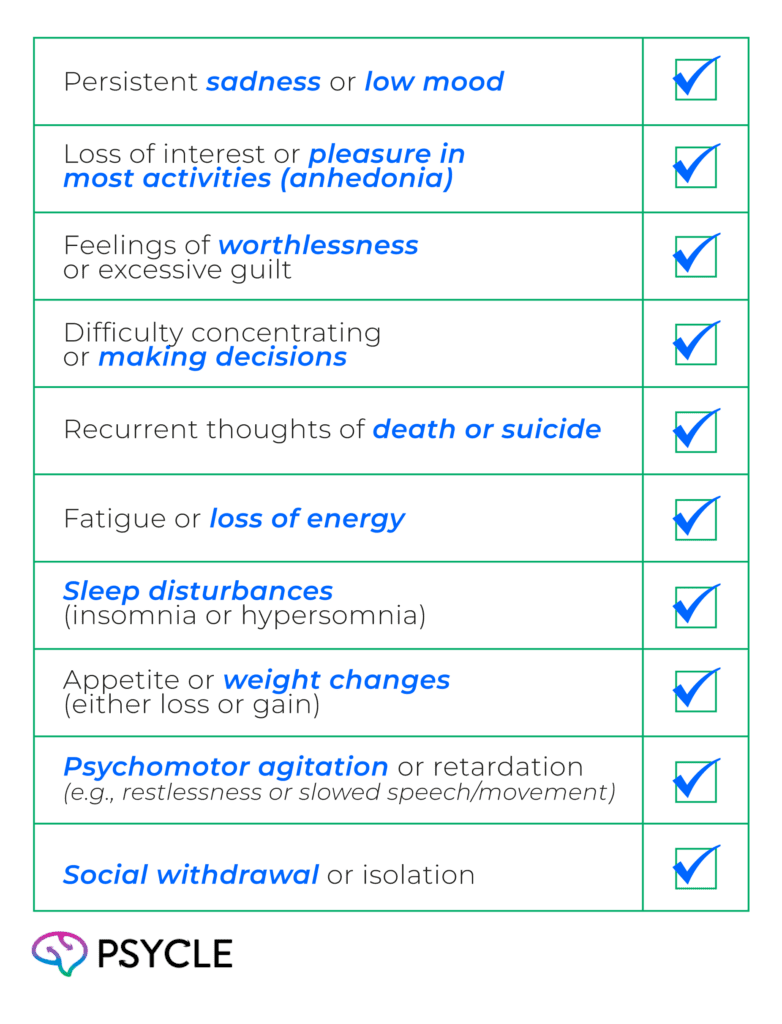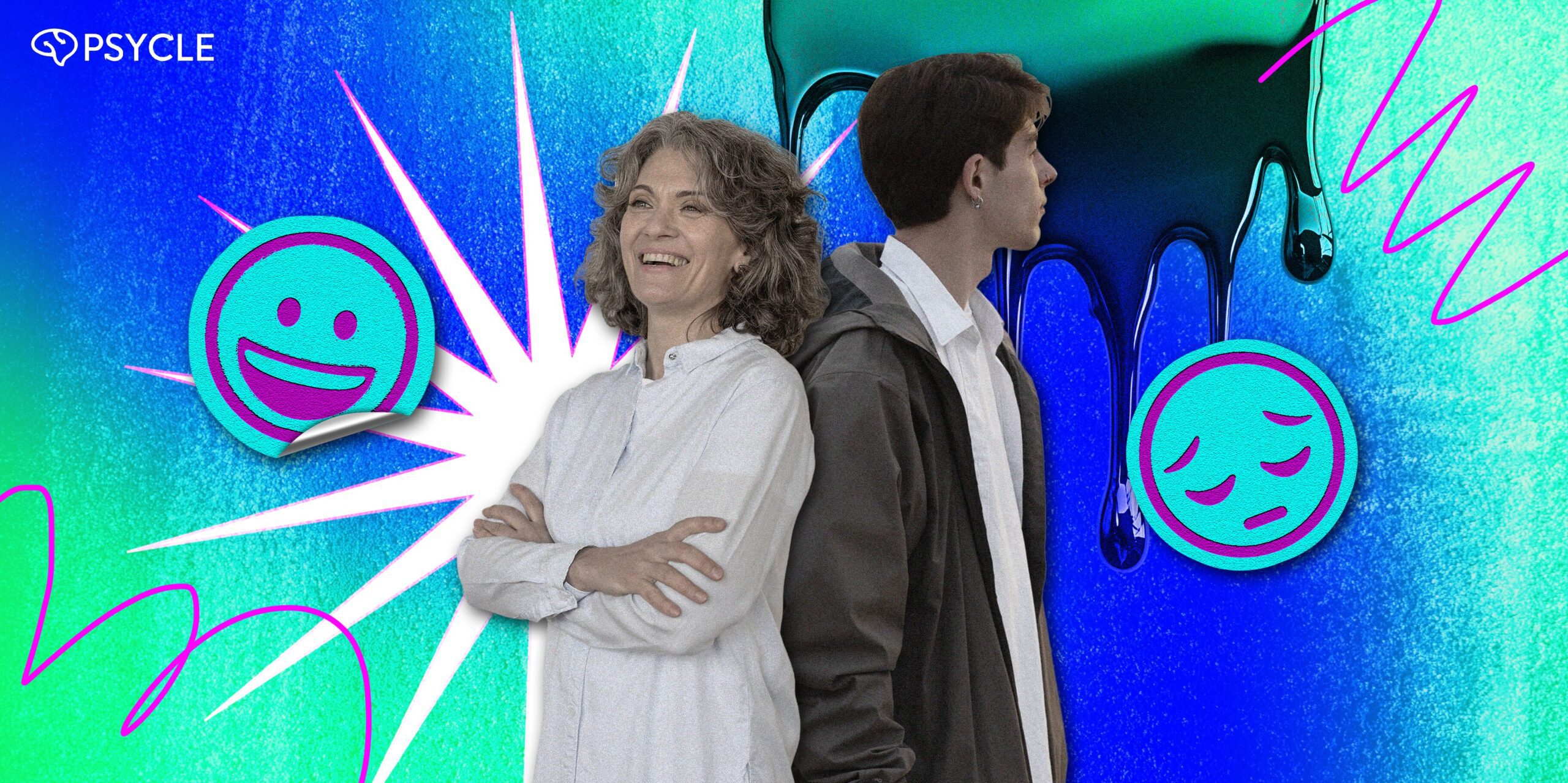Watching an adult child struggle with depression can be heartbreaking. As a parent, you may feel helpless, unsure of what to say, how to support them, or whether you’re doing more harm than good. While you can’t “fix” their depression, your support can make a significant difference in their recovery.
This article offers practical guidance on how to help your adult child navigate depression while also taking care of your own emotional well-being.
Key Takeaways
- Depression is common in young adults and can affect mood, sleep, and daily habits.
- Talk with your adult child using calm, open questions and avoid judgment.
- Professional help, such as therapy and medication, can improve many symptoms.
- Routines, healthy habits, and boundaries support recovery.
- Parents need support, too. Taking care of yourself helps you care for your child.
Depression in Young Adults – Causes and Signs
Many young adults struggle with depression. Approximately 18.6% of 18-25 year olds experienced clinical depression in 2021, according to data from the National Institute of Mental Health.
This age group is susceptible to mental issues, with ongoing stress from education or professional work. Some feel pressure to succeed or live up to expectations. Others may feel lost after they leave home, unsure of what to do with their lives or where they fit in.
These young adults also grew up during the COVID-19 pandemic, during which many experienced disrupted education, delayed career starts, and social isolation. The impact of COVID may still be having an effect on mental health.
While stress and sadness are common, experiencing significant mental health problems for over two weeks could mean your adult child has a depressive disorder. Clinical symptoms of depression include:

As a young adult, it can feel demoralizing to accept that having a “disorder.” However, it’s a way of recognizing that they’re not alone, and that this condition can be treated with the right support.
How to Help a Young Adult with Depression
Start Supportive Conversations
Talk with your adult child in a calm and open way and pick a time when you can speak without distractions. Use short and kind questions, such as, “How are you feeling lately?” or “What can I do to help?”
Let them speak and listen without interrupting or offering fast fixes. Avoid phrases like “You’re just tired” or “Try harder,” as these can make them feel unheard and unappreciated. If you’re unsure what to say, simply acknowledging that you hear them and that you’re there to support them is enough.
Encourage Professional Mental Health Support
Talk therapy is a cornerstone in depression treatment. However, you may need to try out a few different types to find the one that resonates most with your adult child.
The most common therapy for depression in young adults is cognitive behavioural therapy (CBT), which aims to identify and modify negative patterns of thinking. Group therapy can also help reduce feelings of isolation and foster a sense of community.
In more severe cases of depression, antidepressants may be warranted. These medications help to stabilize someone’s mood and can provide relief from symptoms. A doctor will be able to guide you on the most appropriate antidepressant type and dose, depending on your child’s unique medical history.
To find support, you can:
- Search online for mental health clinics in your area
- Ask your doctor for referrals
- Speak to other parents whose children have gone through therapy to get any recommendations
- Look into counseling at school or work
Help Build a Daily Routine
Daily habits help with mental health. Suggest small steps that add structure to the day. These can include:
- Getting up and going to bed at the same time each day
- Taking short walks or doing light exercise
- Doing simple tasks like cooking or cleaning
- Writing a list of goals, even small ones
Support them without pushing. A steady routine can make life feel more manageable.
Set a Positive Example with Self-Care
You also need to take care of yourself. Show your adult child what healthy coping looks like. That can include:
- Taking breaks when you feel stressed
- Talking about your feelings in healthy ways
- Staying active, eating well, and sleeping enough
You don’t need to be perfect. Share what works for you and what doesn’t. This helps your child see that managing emotions is a normal part of life.
Address Substance Use
Young adults with depression may be more likely to use alcohol and drugs as coping mechanisms. Although drinking and drug use are relatively common in young people, problematic use can exacerbate mental health issues and lead to problems in relationships, work, or education. Some signs your young adult may be facing addiction issues include:
- Frequent intoxication or hangovers, especially during weekdays or alone
- Changes in mood or behavior after using substances (e.g., anger, sadness, withdrawal)
- Avoiding responsibilities at work, school, or home
- Secretive behavior, like hiding bottles or lying about one’s whereabouts
- Spending more money than usual, especially with little to show for it
- Neglecting appearance or hygiene
- Using substances to fall asleep, relax, or “feel normal”
- Pulling away from friends and activities that don’t involve drinking or drugs
- Defensiveness or irritability when you bring up their use
To support substance abuse, it’s essential to take a stance of care rather than blame. Without being intrusive, you can gently ask them about their relationship with drugs and alcohol, letting them know that you’re not going to be angry with them.
If you’re adult child is experiencing substance abuse issues, you can look for specialist addiction support, either online or in your local area.
Supporting Yourself as a Parent of a Depressed Young Adult
Helping your adult child with depression can feel heavy. You may feel sad, angry, or helpless, and wonder if you’re doing enough. These feelings are normal.
It’s essential you protect your own health. Set clear boundaries so that you can keep supporting your child without losing yourself. That can mean:
- Not offering money if it leads to misuse
- Saying no to tasks that drain your energy
- Stopping arguments that go in circles
Talk about limits in a calm way. You can say, “I love you, but I can’t do that right now,” or “I need to rest tonight.”
Other parents go through this too. You can find support groups online or in your local area for others who may be experiencing similar feelings related to their child’s depression.
Importantly, keep hope. Many young adults recover with time, support, and treatment. Small steps forward matter.
FAQs
What if My Child is Depressed at College or University?
Encourage them to use campus health services. Many schools have free counseling and other wellbeing services, like yoga and meditation classes. If the depression is really severe, they may need to take some time off to focus on their mental health and possibly repeat a term or year to catch up afterwards. Keep in touch and check with them often if they’re studying away.
Are Antidepressants Safe for Young People?
Antidepressants are generally considered safe and are a first-line medical treatment for depression in young adults. However, there is evidence to suggest these drugs affect the brains of young adults differently from older adults, potentially interfering with development. While the science is unclear, try to see if therapy can make a difference before going straight to medication. See if it’s possible to taper their use once symptoms have started to improve.
Sources
- https://www.nimh.nih.gov/health/statistics/major-depression
- https://charliewaller.org/mental-health-resources/supporting-a-child-with-depression

